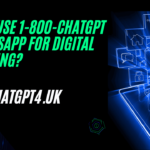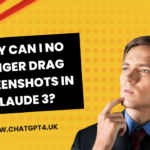Is Claude 3.5 Sonnet better than ChatGPT? In the world of AI language models, competition has been growing rapidly, especially with the continuous advancements by OpenAI and Anthropic. Two of the leading AI models currently in discussion are Claude 3.5 Sonnet by Anthropic and ChatGPT by OpenAI.
Both models offer groundbreaking capabilities, but they differ in terms of performance, design, use cases, and overall user experience. In this article, we will provide a detailed comparison between Claude 3.5 Sonnet and ChatGPT, answering the critical question: Is Claude 3.5 Sonnet better than ChatGPT?
1. Overview of Claude 3.5 Sonnet and ChatGPT
Claude 3.5 Sonnet
Claude 3.5 Sonnet is the latest language model developed by Anthropic, designed to be both advanced and safe. It focuses on providing human-like conversational abilities while ensuring that its responses adhere to ethical guidelines. This version builds on previous iterations of Claude and adds more depth, coherence, and safety features to its language capabilities.
Key Innovations of Claude 3.5 Sonnet:
- Focuses on alignment and safety measures.
- Provides robust conversational context.
- Enhanced ability to follow nuanced instructions.
ChatGPT
ChatGPT is a highly popular language model developed by OpenAI. It is designed for a wide range of tasks, from casual conversations to technical problem-solving. ChatGPT is built on the GPT (Generative Pre-trained Transformer) architecture, which has been iteratively improved with new releases. The latest version (GPT-4) has pushed the boundaries of natural language understanding and generation.
Key Innovations of ChatGPT:
- Powerful general-purpose model with a wide range of applications.
- Multilingual capabilities.
- High adaptability to various domains and tasks.
| Aspect | Claude 3.5 Sonnet | ChatGPT (GPT-4) |
|---|---|---|
| Developer | Anthropic | OpenAI |
| Model Type | Conversational AI focused on safety | General-purpose AI for multiple tasks |
| Primary Use | Conversations and safe interactions | Versatile across various domains |
| Multilingual Support | Limited | Strong multilingual capabilities |
2. Key Features of Claude 3.5 Sonnet
Claude 3.5 Sonnet brings a set of features that make it stand out from previous versions of Claude and other AI models:
Safety-Oriented Language Generation
One of the standout features of Claude 3.5 Sonnet is its commitment to safety. The model is specifically designed to reduce harmful or biased outputs. It adheres to a strict set of guidelines, ensuring that the responses generated are less likely to propagate misinformation, hate speech, or other problematic content.
Human-Like Conversations
Claude 3.5 Sonnet focuses heavily on maintaining a human-like flow of conversation. The model emphasizes clarity, coherence, and natural transitions between topics. This makes it ideal for longer conversations where consistency and context matter.
Strong Ethical Alignment
Ethical alignment is at the core of Claude 3.5 Sonnet’s design. This model emphasizes staying within ethical boundaries, offering a sense of reliability when handling sensitive subjects or complex ethical questions. Anthropic has placed a lot of emphasis on this feature, distinguishing Claude 3.5 Sonnet from other AI models.
Instruction Following
Claude 3.5 Sonnet has been improved to follow complex and nuanced instructions more accurately. This makes it highly effective for tasks requiring precise directions, such as writing detailed reports, answering technical questions, or providing guided interactions.
3. Key Features of ChatGPT
ChatGPT, especially in its latest iteration (GPT-4), offers a broad array of features that make it versatile across different domains:
Versatility
ChatGPT is designed to excel across various use cases, from content generation and programming to education and entertainment. It is a multi-domain model capable of adapting to the context of a query and generating insightful responses.
Multilingual Capabilities
With its support for multiple languages, ChatGPT can converse and generate content in a wide variety of languages. This feature makes it globally accessible and useful for international applications, making it a powerful tool for users around the world.
API Integration and Fine-Tuning
One of ChatGPT’s advantages is its integration with different platforms and APIs. OpenAI provides APIs for developers to fine-tune the model to specific needs, allowing businesses to customize its functionality to their unique requirements.
Knowledge Retention and Context Handling
ChatGPT excels in retaining the context of ongoing conversations. With its expanded memory capabilities in GPT-4, it can remember multiple steps of interaction and handle complex multi-turn conversations.
4. Performance Comparison
The real question often boils down to performance. Here, we analyze both models in terms of their conversational skills, ability to handle complex tasks, and adaptability to different environments.
Conversational Ability
Claude 3.5 Sonnet is strong in human-like, empathetic, and ethically aligned conversations. However, its primary limitation is in handling highly technical content. ChatGPT, on the other hand, shows superior performance in technical problem-solving and factual accuracy, though it sometimes lacks the ethical guardrails that Claude provides.
Instruction Following
In terms of instruction-following capabilities, Claude 3.5 Sonnet is more attuned to interpreting and executing highly nuanced and complex instructions. ChatGPT, while highly capable, tends to generalize its responses when instructions are too vague or complicated.
| Performance Metric | Claude 3.5 Sonnet | ChatGPT (GPT-4) |
|---|---|---|
| Conversational Ability | Superior human-like interactions | Versatile but less focused on empathy |
| Instruction Following | Exceptional with nuanced tasks | Good, but less precise with complexity |
| Technical Content Handling | Moderate | Excellent |
| Ethical Alignment | Strong adherence to ethical principles | Moderately aligned |
5. Use Cases and Applications
Both Claude 3.5 Sonnet and ChatGPT are used across different industries and domains, but they each have their own strengths and specialties.
Claude 3.5 Sonnet Use Cases
- Customer Support: Its ethical guardrails and human-like conversations make it ideal for industries requiring customer support services.
- Mental Health Assistance: Claude’s empathetic conversational style makes it suitable for mental health and wellness applications.
- Moderation: Claude 3.5 Sonnet’s safety mechanisms allow it to be used in platforms that require strict moderation and adherence to guidelines.
ChatGPT Use Cases
- Programming Assistance: ChatGPT excels in technical problem-solving and code generation.
- Content Creation: Its ability to generate detailed and versatile content makes it a popular choice for content writers and marketers.
- Education: ChatGPT can generate educational materials and provide personalized tutoring services.
6. User Experience
User experience is a critical factor in determining the effectiveness of an AI model. Both Claude 3.5 Sonnet and ChatGPT offer different user experiences tailored to their unique goals.
Claude 3.5 Sonnet
Claude’s user experience is centered around a safe, empathetic, and ethical interaction. It is best suited for users who prioritize ethical boundaries and human-like conversations. However, for technical tasks, users may find its limitations in handling highly specialized content.
ChatGPT
ChatGPT offers a more versatile and technically advanced user experience. Its broader range of capabilities allows users to perform a variety of tasks, from casual conversations to complex coding. The model is ideal for users who need both creativity and technical expertise in one place.
| Aspect | Claude 3.5 Sonnet | ChatGPT (GPT-4) |
|---|---|---|
| Ease of Use | Highly user-friendly | Versatile and flexible |
| Ethical Boundaries | Strong enforcement | Moderate |
| Technical Capabilities | Limited | Advanced |
| Multilingual Support | Basic | Strong |
7. Pricing and Accessibility
Pricing is often a key consideration for businesses and developers looking to implement AI solutions. Let’s compare the pricing structures of Claude 3.5 Sonnet and ChatGPT.
Claude 3.5 Sonnet Pricing
As of now, Anthropic has not fully disclosed its commercial pricing model, but it is expected that Claude 3.5 Sonnet will follow a competitive pricing strategy aimed at enterprises that prioritize safety and ethical use.
ChatGPT Pricing
OpenAI offers both free and paid tiers for ChatGPT. The free version allows access to the base GPT-3.5 model, while a subscription to ChatGPT Plus gives access to GPT-4, with faster response times and improved accuracy.
8. Security and Privacy
Security and privacy concerns are paramount in AI. Both Claude 3.5 Sonnet and ChatGPT take different approaches to ensure that user data is protected.
Claude 3.5 Sonnet
Claude 3.5 Sonnet has been designed with strict security measures. Anthropic places a strong emphasis on protecting sensitive information, ensuring
that the model adheres to both legal and ethical guidelines.
ChatGPT
ChatGPT also implements strong security protocols, particularly in its enterprise offerings. OpenAI’s data handling practices ensure compliance with GDPR and other privacy regulations, but concerns have been raised over the model’s tendency to remember contextual information in long conversations.
9. Claude 3.5 Sonnet vs. ChatGPT: Strengths and Weaknesses
Here is a breakdown of the primary strengths and weaknesses of both models:
| Aspect | Claude 3.5 Sonnet Strengths | Claude 3.5 Sonnet Weaknesses | ChatGPT Strengths | ChatGPT Weaknesses |
|---|---|---|---|---|
| Conversational Ability | Highly empathetic | Lacks technical depth | Versatile across domains | Less focused on empathy |
| Safety and Ethics | Strong ethical adherence | Slower when handling complex tasks | Flexible, wide range of use cases | Potential ethical blind spots |
| Instruction Following | Excellent with nuanced instructions | Can be overly cautious | Good at general instructions | Struggles with overly complex prompts |
| Multilingual Support | Moderate | Limited compared to ChatGPT | Strong across languages | Prone to occasional translation errors |
10. Conclusion
When evaluating whether Claude 3.5 Sonnet is better than ChatGPT, it ultimately depends on your specific needs. Claude 3.5 Sonnet excels in areas where ethical alignment and human-like conversation are key, making it an excellent choice for customer support, moderation, and wellness applications.
On the other hand, ChatGPT stands out with its versatility, technical depth, and adaptability across a wide range of industries and domains.
For businesses and developers looking for technical solutions, ChatGPT is the stronger contender. However, for those seeking a more ethically sound and empathetic model, Claude 3.5 Sonnet might be the better option.
Both models represent the cutting edge of AI, but they serve different purposes depending on the user’s priorities.







